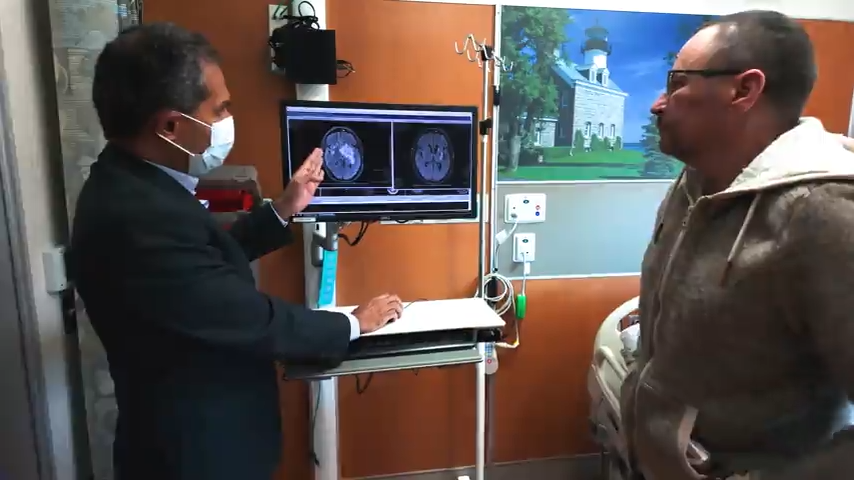
Although Nate Rickles is the son of a pharmacist, he didn’t take a direct route into a career in pharmacy. Instead, he explored both the hard sciences and the social sciences as an undergraduate at Dickinson College in Pennsylvania where he had a double major in Chemistry and Psychology. He earned his PharmD in Clinical Pharmacy at the Philadelphia College of Pharmacy & Science and followed that with a psychiatric pharmacy practice residency at the University of Texas Health Science Center, leading to Board certification in this specialty. But he wasn’t through yet.
“I always had an interest in the social sciences and when I had the opportunity to enter a PhD program in Social and Administrative Sciences at the University of Wisconsin-Madison School of Pharmacy, and study with noted medical sociologist Bonnie Svarstad, I jumped right in. She was all about pharmacist-patient communications and patient adherence to drug regimens. That was more or less my calling.”
Perhaps because of lessons learned from his father, who had a 45 year career as a community pharmacist, Rickles is particularly attuned to the pivotal role pharmacists play in inter-professional teams and the degree to which they can facilitate healthcare delivery while reducing healthcare disparities.
He is particularly interested in how community pharmacists can improve medication use outcomes among vulnerable populations including older adults, those with mental illness and substance abuse disorders, and other groups at high risk for health disparities. He is also using secondary data analysis to evaluate medication adherence at the population and policy level as well as exploring the use of technology to improve safe medication use.
He is a member of UConn’s Institute for Collaboration on Health, Intervention, and Policy (InCHIP), Center of Aging, and the Center for Public Health and Health Policy. He is also collaborating with the non-profit Institute for Community Research in Hartford, which is devoted to finding the root causes of health disparities among disadvantaged individuals and communities. Currently, he has a grant with the Patient-Centered Outcomes Research Institute (PCORI) to explore community pharmacy’s role in medication adherence interventions among people with major depression. He is also lead editor of the recent third edition of the textbook, Social and Behavioral Aspects of Pharmacy Practice (Kendall Hunt Publishers).
Rickles, who joined the School of Pharmacy as an Associate Professor of Pharmacy Practice in 2016, says his teaching interests include health communication, health behavior change/health promotion, the sociology of mental health, and research design/methods.
“I have been teaching pharmacy communications and behavior change for over 20 years and I love interacting with students and teaching them not only how to talk with patients effectively, but to hone their inter-professional communications skills. This is becoming an increasingly important part of a pharmacist’s role as part of the health delivery team,” he says.
Rickles lives in Glastonbury with his wife, Jenny, a quality improvement specialist at Connecticut Children’s Medical Center, and their two small children, Evan and Susie.



